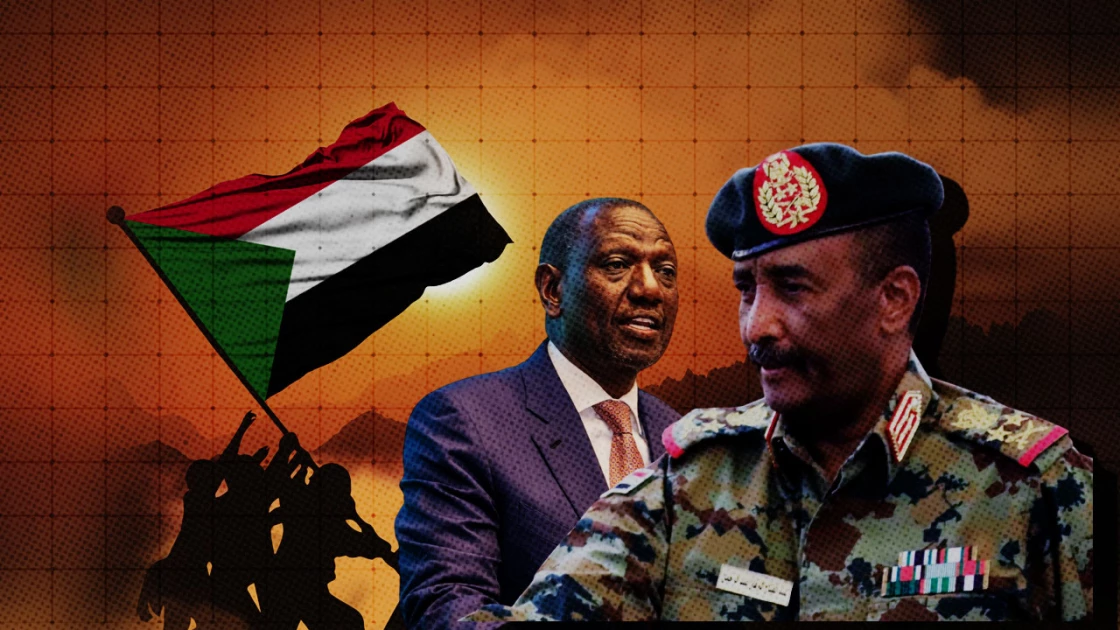Facebook Twitter (X) Instagram Somali Magazine - People's Magazine
Kenya apologises to Gulf countries again over Sudan war, issuing a second formal statement to Middle Eastern nations following controversial remarks by a government spokesperson that linked regional powers to the ongoing conflict in Sudan. Prime Cabinet Secretary Musalia Mudavadi, who also serves as Cabinet Secretary for Foreign and Diaspora Affairs, met with Gulf envoys in Nairobi this week to reaffirm Kenya’s commitment to neutrality and regional peace.
The apology comes after government spokesman Isaac Mwaura publicly accused Egypt, Iran, and the United Arab Emirates of backing rival factions in Sudan’s civil war. Mwaura claimed Egypt and Iran were supporting the Sudan Armed Forces (SAF), while the UAE was allegedly aiding the Rapid Support Forces (RSF), citing interests in Nile waters, gold, agriculture, and Red Sea access. His comments, made during a June press briefing and later posted on social media, were never officially retracted, sparking diplomatic backlash and fueling accusations that Kenya was interfering in Sudan’s internal affairs.
During the meeting, Mudavadi clarified that Mwaura’s statements did not reflect the official position of Kenya’s Ministry of Foreign Affairs. “Mudavadi expressed apologies to the capitals of the member states for the statement that may have caused distress,” his office said in a statement.
The Gulf envoys present included ambassadors from Saudi Arabia, Jordan, Egypt, and the UAE, who had initially gathered to discuss the humanitarian crisis in Gaza. However, the Sudan issue quickly took center stage, with diplomats expressing concern over Kenya’s perceived alignment with RSF forces.

This marks the second time Kenya has distanced itself from Mwaura’s remarks. Earlier this year, Sudan’s military government used his statements to accuse Nairobi of arming the RSF with UAE support—a claim strongly denied by Foreign Affairs Principal Secretary Korir Sing’oei.
Kenya’s involvement in Sudan’s peace process has been under scrutiny since President William Ruto hosted RSF leader Mohamed Hamdan Dagalo in Nairobi. While Kenya has positioned itself as a neutral mediator under the Intergovernmental Authority on Development (IGAD), critics argue that its actions have undermined its credibility and strained relations with Khartoum.
Mudavadi reiterated Kenya’s support for a two-state solution in the Israel-Palestine conflict and emphasized the country’s broader commitment to peace and diplomacy. He noted that Kenya’s foreign policy now includes a sessional paper endorsed by parliament, which calls for international legitimacy through the UN framework and homegrown solutions based on socio-cultural tolerance.
The Sudan war, which erupted in April 2023, has claimed over 35,000 lives and displaced millions. Kenya’s alleged proximity to RSF leadership has drawn criticism from global powers, including the United States, which warned against legitimizing parallel governments in Sudan.
As Kenya works to repair its diplomatic standing, the latest apology underscores the delicate balance it must maintain in regional geopolitics. With Gulf nations playing a significant role in Sudan’s conflict dynamics, Nairobi’s efforts to reaffirm neutrality are crucial to preserving its influence and avoiding isolation.

